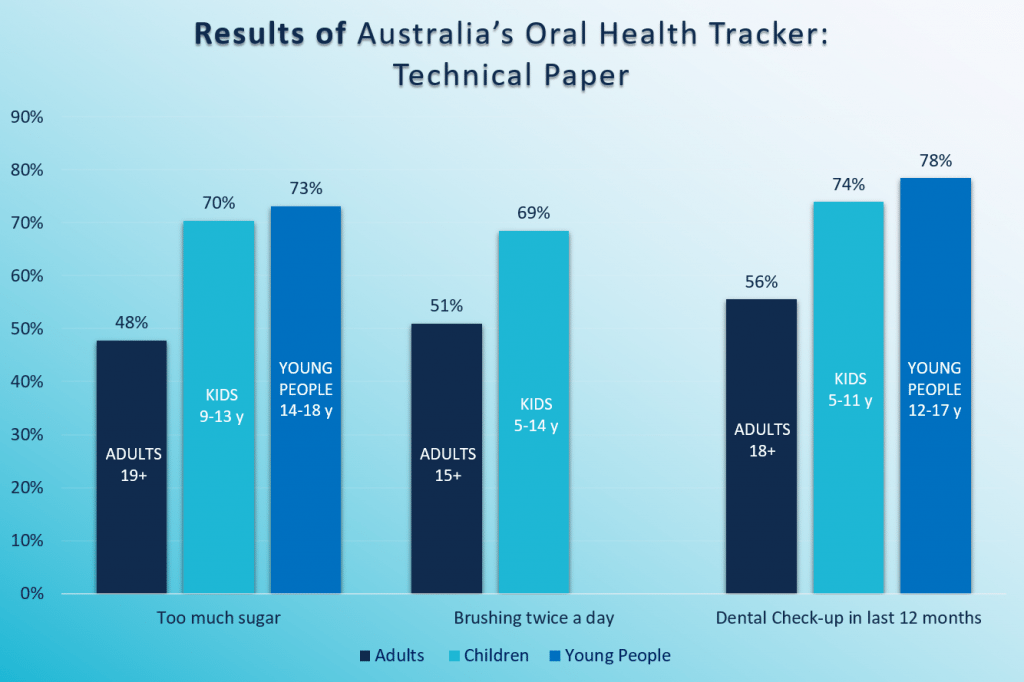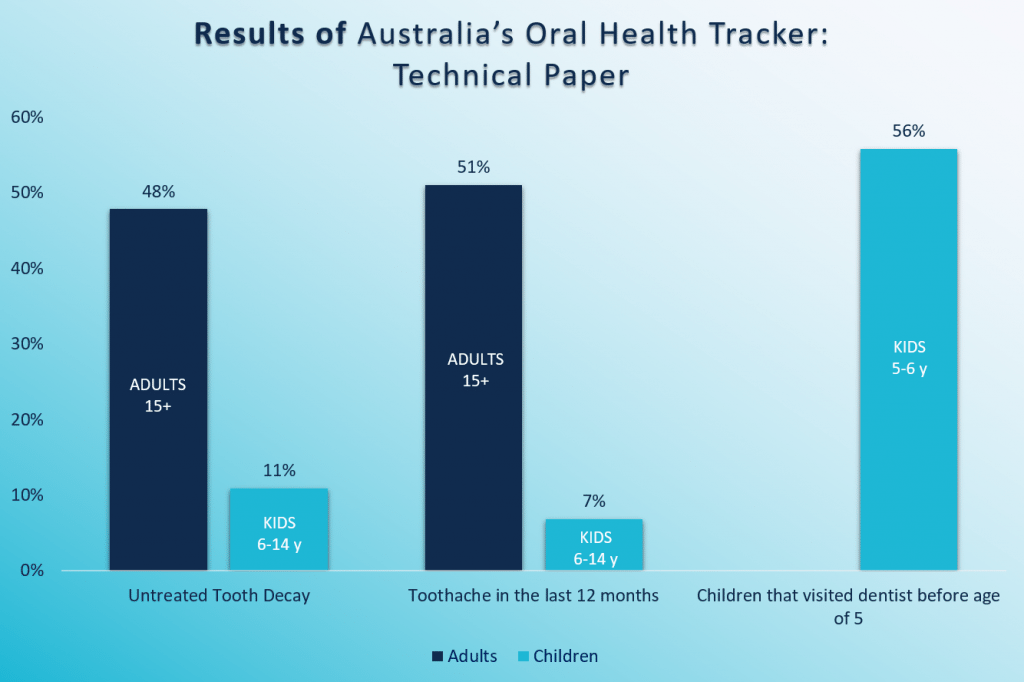March 20, 2018
‘Say Ahh: Think Mouth, Think Health’ is the motto of this year’s World Oral Health Day. The “ahh” could also be interpreted in a different way after the release of some alarming findings from Australia’s Oral Health Tracker. Too much sugar intake, inefficient tooth brushing, and irregular dental visits are just some of the factors which should be improved Australia wide.
For the first time, the Australian Health Policy Collaboration (ahpc), the Australian Dental Association (ADA) and a working group of academics, researchers, epidemiologists, public health experts and dental practitioners have developed a technical paper discussing the oral health policies and services in Australia.
The paper is the first of its kind in the world and clearly highlights some shortfalls in our Australian society in terms of looking after our oral health.*
At Coastal Dental Care, we would like to be part of the journey to improve these figures for the Gold Coast, Northern NSW and Redland Bay community. We want to remind everyone that the World Oral Health Day campaign encourages people to make the connection between their oral health and the overall health and well-being of their body.

One of the alarming findings from the Oral Health Tracker is the staggeringly high sugar intake across all age groups. Whilst 48% of adults (19+) consume more than the recommended amount, 70% of children between 9 and 13 years and even 73% of young people (14-18 years) have too much sugar.
How does sugar affect your dental health?
- The bacteria in your mouth that helps to digest food, especially feeds on sugar and sticks to your teeth. This is why after eating sugary snacks you might feel a ‘furry’ feeling along your teeth. If the layer of bacteria on your teeth gets too thick, your saliva might not be able to wash it away.
- Bacteria produce acids and a build-up of plaque.
- This plaque feeds on more incoming sugar and continues to grow. While the acids attack your tooth enamel (the protective layer around your teeth).
- Regular loss of enamel can lead to tooth decay and cavities.
Another finding of the study outlines that only 51% of Australians over the age of 15 brush their teeth twice a day. 69% of children, on the other hand, are slightly better at looking after their dental health and brush their teeth twice daily.
Why do I have to brush twice a day?
- Brushing your teeth thoroughly helps cleaning the above-mentioned bacteria off your teeth. This protects not only your enamel but also removes bad breath caused by bacteria.
- By brushing less than twice daily, you’re allowing bacteria the time to build up and attack the tooth enamel.
- Flossing gets bacteria that hides in between your teeth and protects your teeth from damage.
When looking at the preventative part of the survey, only 56% of adults (18+) went for a dental check-up in the last 12 months. The percentages for children between 5 and 11 years (74%) and young people (12-17 years, 78%) are slightly better. Unsurprisingly, 48% of adults (15+) had untreated tooth decay and 51% had a tooth ache in the last 12 months.
 Data Retrieved from: Australia’s Oral Health Tracker*
Data Retrieved from: Australia’s Oral Health Tracker*
An increase in people going for their regular check-ups across all age groups could possibly lower the numbers of untreated tooth decay and toothaches.
What happens when I come in for a regular check-up and clean? Our Coastal Dental Care dentist will:
- Check your head and neck for any signs of cancer or lumps that are abnormal.
- Discuss TMJ issues, headaches and sleep apnoea.
- Look inside the mouth, check your soft tissues, throat, and tongue.
- Check periodontal (gum) tissues for swelling, redness and pockets.
- Check your teeth for decay, fractures, existing fillings, tooth wear, and colour.
- Take x-rays if required.
- Clean your teeth below and above the gum tissue and remove staining and polish them, if necessary, the dentist will also apply fluoride which help protect your tooth enamel from erosion and decay.
And when is the right time to bring children to the dentist for the first time? The Oral Health Tracker result showed that only 56% of 5- and 6-year-olds have visited the dentist before the age of 5.
Our Redland Bay Dentist Dr Noopur Sharma sums up when you should bring your children in for the first time to see a dentist and what happens at the first dental visit.
Coastal Dental Care is proud to support the World Oral Health Day. Our team is striving to improve the oral health of people on the Gold Coast, in Northern NSW and Redlands and contribute to achieve the goals set by the ahpc and ADA in Australia’s Oral Health Tracker for 2025.
* Source: Manton DJ, Foley M, Gikas A, Ivanoski S, McCullough M, Peres MA, Roberts-Thomson K, Skinner J, Irving E, Seselja A, Calder R, Harris B, Lindberg R, Millar L, Nichols T. 2018 Australia’s Oral Health Tracker: Technical Paper, Australian Health Policy Collaboration, Victoria University, Melbourne. Retrieved from: https://www.ada.org.au/Dental-Professionals/Australia-s-Oral-Health-Tracker/Australia-s-Oral-Health-Tracker-Technical-Appendix/ADA_AHPC_Technical-Appendix_07032018 (19.03.2018).

